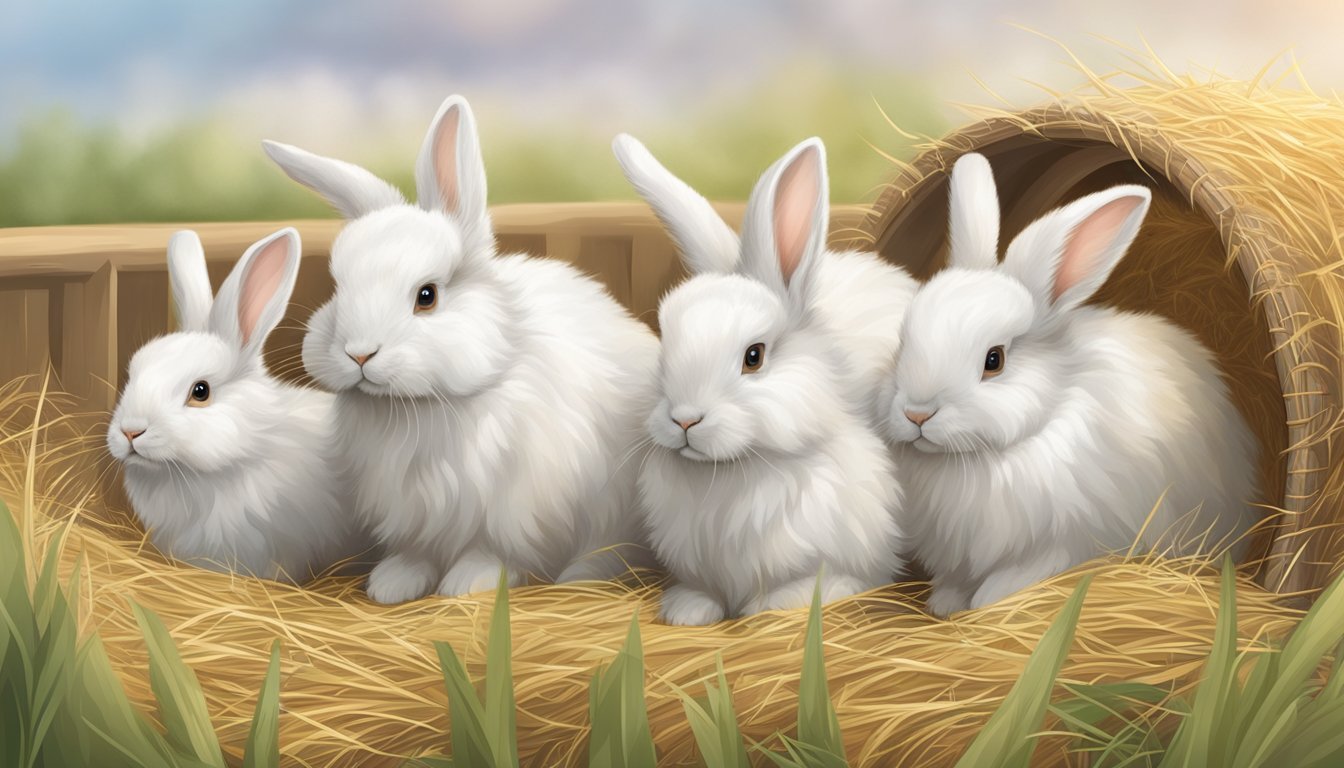Raising & Breeding Rabbits for Meat
Backyard rabbit farming is gaining popularity and offers sustainability for those looking to have their own food source. However, rabbits are an underutilized livestock resource among smallholders in this country. Perhaps this is because they are often seen as children's pets here. While rabbits are undoubtedly adorable, they are also low-maintenance and cost-effective to raise. They breed prolifically and are well-suited for small spaces. Additionally, they can be easily and legally dispatched at home in a humane manner. If you're interested in producing your own meat without the administrative burden associated with traditional livestock, rabbits are definitely worth exploring further.
Rabbits are an excellent source of protein and other essential nutrients such as iron, phosphorus, and potassium. They are also a healthier choice than other meats as they are low in fat and cholesterol. Additionally, raising rabbits for meat is more sustainable and ethical than raising larger livestock animals such as cows, pigs, and sheep. Rabbits require less feed, produce less waste, and they are easy to manage. So, are rabbits considered livestock? No the USDA doesn’t class them as livestock but as animals that don’t require routine inspection.
To start raising rabbits for meat, you must have a suitable space and proper equipment. You can raise rabbits in cages, hutches, or a combination of both. The housing should be appropriately ventilated and protected from extreme temperatures. You must also provide your rabbits with good-quality feed to ensure they grow healthy and reach the appropriate weight for meat production. Moreover, clean water is an essential requirement for growing rabbits.
Breeding is a critical factor in raising rabbits for meat. For successful breeding, it is essential to choose a healthy, high-quality breeding stock that meets industry standards. You should also ensure that the rabbits have a high breeding rate. Female rabbits, also known as does, can produce litters of up to 12 kits each year. However, breeding rabbits requires some expertise, and it’s essential to have a breeding plan in place.
One of the significant challenges of raising rabbits for meat is the predators that can threaten your livestock. Protecting your rabbits from predators such as coyotes, foxes, and birds of prey can be difficult and require a lot of effort. Additionally, rabbit breeding can also pose some challenges, including high levels of temperature and humidity in the breeding area, which can affect the health of your rabbits.
To produce high-quality rabbit meat, ensure that you have a proper breeding program in place. Provide your rabbits with good quality feed and clean water to help them grow and stay healthy. Be vigilant in monitoring your rabbits' health and take immediate action if you notice any signs of illness. You should also protect your rabbits from parasites and pests that can affect their growth and health.
Raising and breeding healthy rabbits for meat is an excellent option for those who want a more sustainable and ethical way of producing meat. However, it requires some knowledge and expertise to be successful. By following the tips above and taking the necessary precautions, you can have a thriving rabbit meat production operation. Remember to choose high-quality breeding stock, provide your rabbits with good quality feed and clean water, protect them from predators and pests, and monitor their health regularly. Happy rabbit farming!
Raising Angora Rabbits
Angora rabbits, prized for their soft fur and docile nature, offer a fulfilling and potentially lucrative hobby. Proper care ensures a thriving, healthy brood and a bountiful wool harvest.
Introduction to Angora Rabbits: A Comprehensive Guide
Dive into the world of Angora rabbits, renowned for their soft, luxurious fur. Explore their origins, various breeds, and the enchanting personalities that make them a favorite among many.



